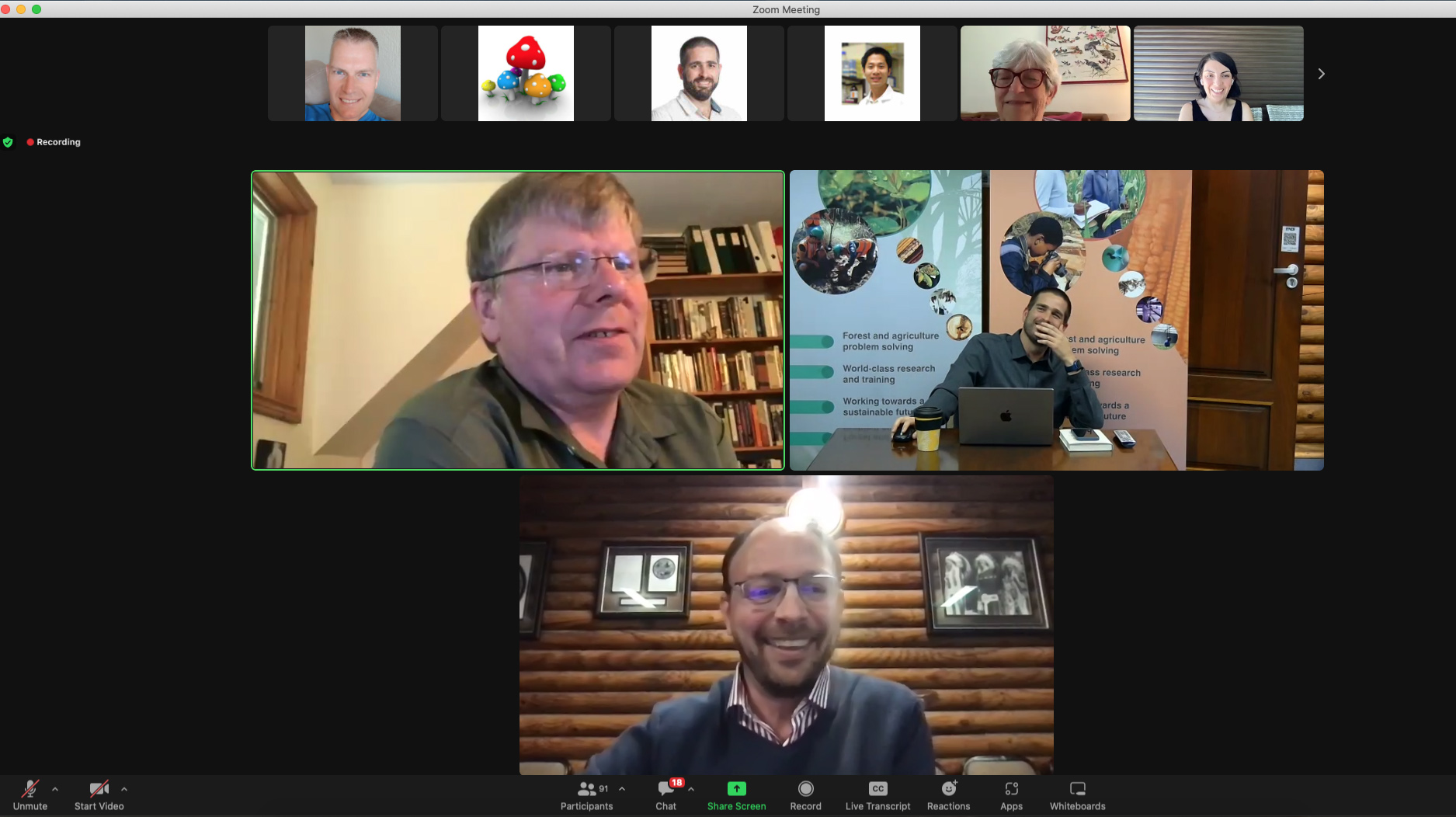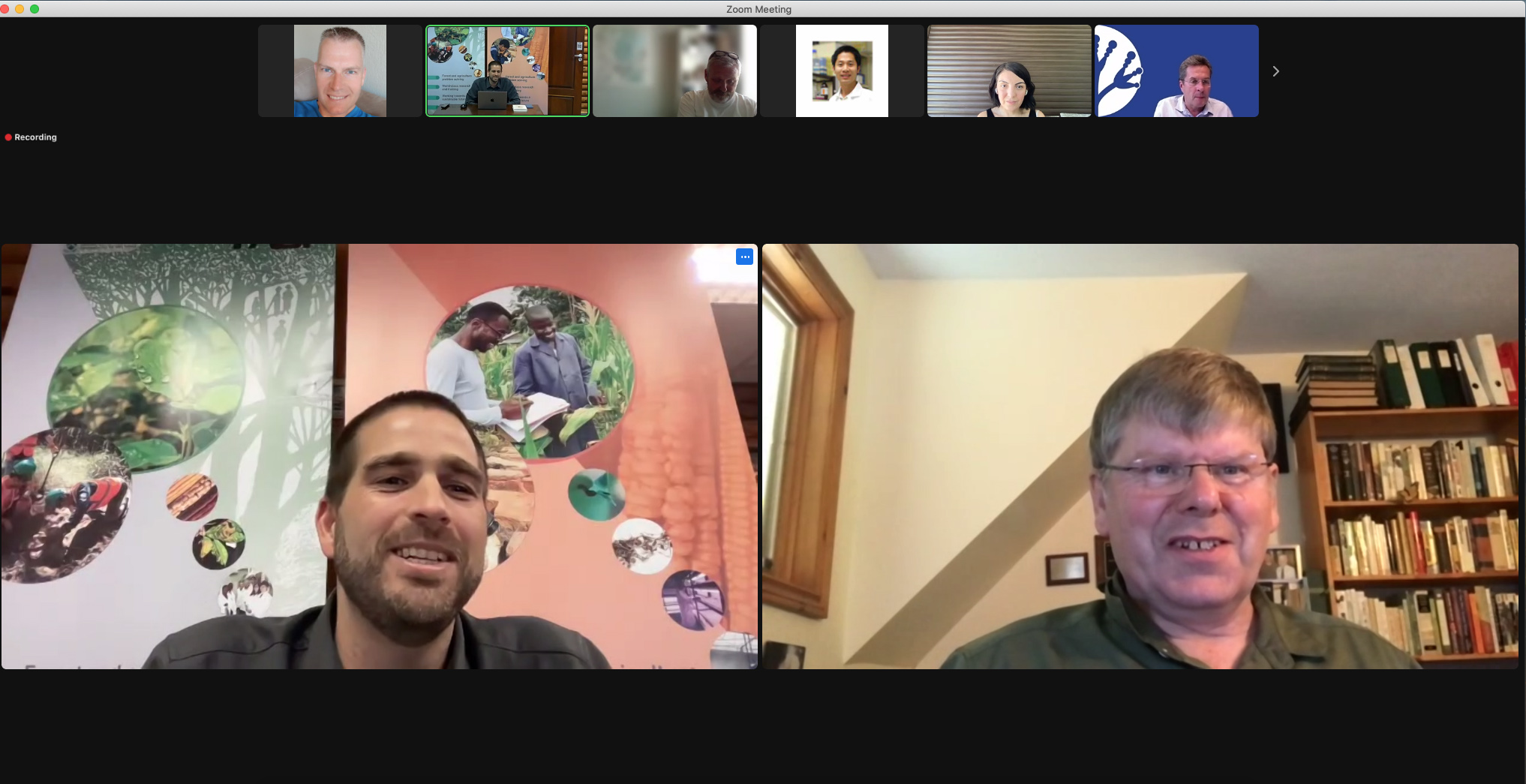The Three microfungi that changed the world 2022-07-08
Leading Canadian Mycologist Keith Seifert was the guest presenter at the June FABI International Seminar. His popularity and the high regard he’s held by the international research community was evident by the large number of people from around the globe that signed in to listen to his presentation “In the right place at the right time: Three “microfungi” that changed the world” on 30 June. Keith has a long association with FABI and has visited South Africa twice before. The fascinating presentation draws from his recently-published book “The Hidden Kingdom of Fungi” and shows how three fungi had profound effects on human affairs. The Great Potato Famine was caused by Phytophthora infestans and Keith traced the path of its devastating impact from its origins to the Irish diaspora of millions of victims to Canada and the USA, Australia and New Zealand, and South Africa. Next, the discovery of penicillin and its impacts on World War II and conflicting concepts of intellectual property was discussed. Finally, the emergence of aflatoxin as a major threat to public health, especially in the developing world. These stories show that the impacts of fungi and fungal research extend far beyond the corridors of science and illustrate that national interests often clash with international cooperation in science.
Keith Seifert has, for more than 40 years, specialised in the identification and classification of microscopic fungi producing toxins in crops and foods. He worked as a Research Scientist for Agriculture and Agri-Food Canada in Ottawa from 1990-2019. His academic publications include >250 scientific papers and six books (including two co-edited with Prof. Mike Wingfield). He retired from research in 2019 to write about interactions between science, the arts, history and society.




